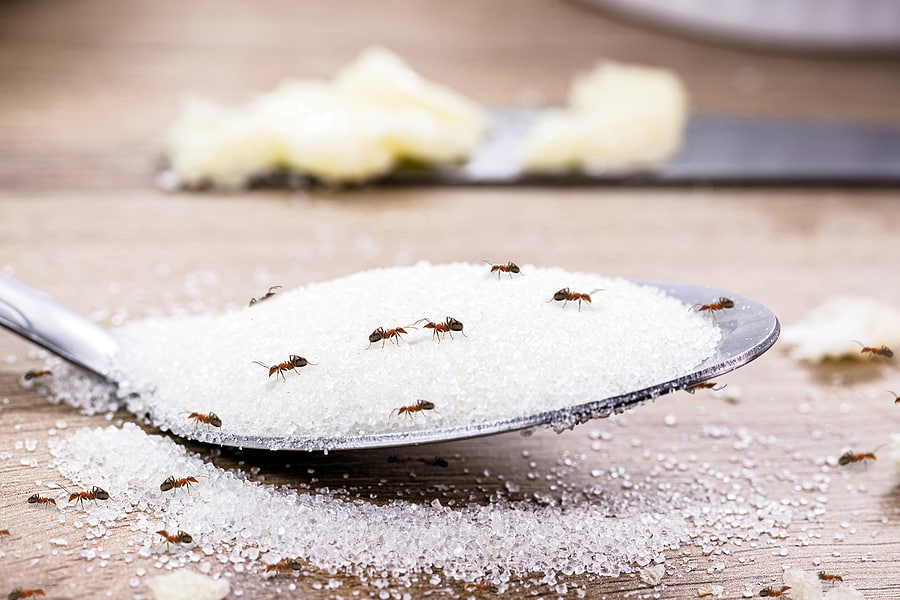The kitchen is one of the most common rooms in your home to have ants, closely followed by the bathroom. The most common ants found indoors are odorous house ants, also known as nuisance ants. While these ants don’t cause structural damage and aren’t considered dangerous to humans or pets, they can contaminate your food and become quite a nuisance to deal with. Carpenter ants are larger black ants that can also get into your home. These ants do cause structural damage by boring through the wood components of your house.
The ants you find in your home don’t actually live there; they build colonies outdoors and come in looking for food and water to take back. These elements are necessary for the colony to live and grow. Scout ants who find these sources leave a pheromone trail for the rest of the colony to follow which is why you will often see ants traveling in a single line. Because they can scale walls and travel between stories in your home, they can spread quickly and be extremely difficult to get rid of.
Ants are attracted by a number of things found in your home. They use crumbs, spills, loosely sealed food packages, dirty dishes, and even pet food bowls to find food. They use leaky pipes, pet water bowls, and standing water for hydration.
What can you do to keep ants from taking over your kitchen? Prevent ants by:
- Sweeping and mopping floors regularly.
- Cleaning up crumbs and spills immediately.
- Wiping down counters and stovetops daily.
- Not leaving dirty dishes out overnight.
- Emptying trash regularly.
- Using trashcans with lids.
- Throwing away uneaten pet food or putting it in a sealed container overnight.
- Storing pet food in sealed containers versus non-sealing bags.
- Cleaning around your pet’s food and water bowls often.
- Dumping and replacing pet water frequently from their bowls.
- Storing pantry food in sealed containers versus boxes and bags when possible (e.g. cereal, grains, sweets). This also helps prevent other common pantry pests.
- Getting rid of overripe food stored on counters.
- Repairing leaky pipes.
- Eliminating standing water.
- Repairing cracks and gaps in foundations.
- Not storing firewood next to your home.
Killing just the ants you find in your home won’t eliminate the entire infestation. You must eradicate them at the source – at their colonies. These ants can be difficult to eliminate because individual colonies can number in the thousands and they can be spread out all over your property. For assistance in dealing with ants or any other pests you may find in your home, contact your local pest control company for an evaluation.
You May Also Be Interested In:
9 Easy Ways to Keep Birds Away

